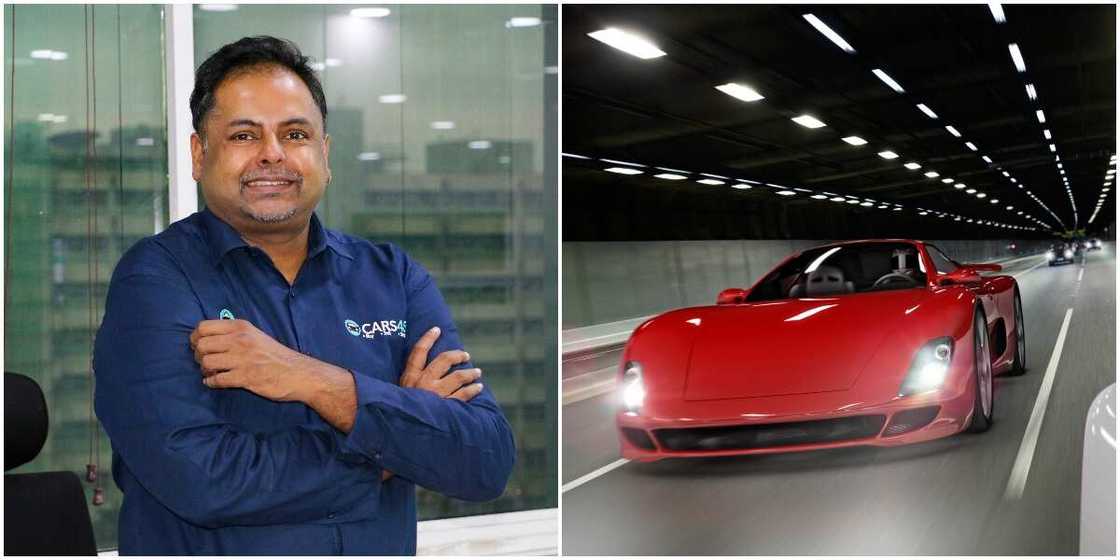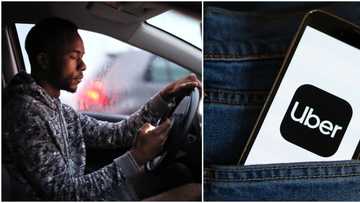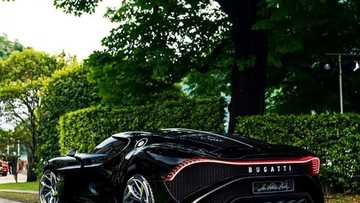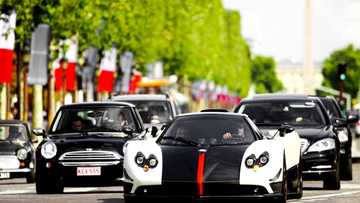Luxury car Market: How COVID-19 Affected Purchasing Power of the Rich and Lower Class Nigerians
- COVID-19 pandemic affected both the rich and the poor, when in terms of spending, impact was different
- The affluent individuals continued to purchase luxury cars, while the middle and lower class recorded decline in purchasing power
- American and European automakers were impacted negatively, but Japanese brands were car of choice for many
PAY ATTENTION: Join a community of CEOs, founders and decision-makers: subscribe for a free monthly business newsletter Digital Talks and succeed BIG!
In 2020, COVID-19 might have affected everyone, but it did differently, especially among low income earners and upper-class citizens, because while the former was worried about its declining disposable income, the latter was more concerned of riding the pandemic out in fast cars.
During the COVID-19 period, demand for luxury cars skyrocketed, as more affluent persons wanted to drive a Porsche, Ferrari or Lamborghini. This showed a difference in reaction between the low income earners and upper-class citizens.
Although, the pandemic made people tilt towards private vehicles compared to public transportation, in a bid to avoid contacting the virus. This pushed car registration in Lagos up by 11% in 2020, compare to 2019, Cars45 CEO, Soumobroto Ganguly told Legit.ng in an interview.
According to Ganguly, this is despite:
"the naira going up, people losing job due to the pandemic and the general recession." Legit.ng heard.
How the wealthy lived during the pandemic
Many were not purchasing luxury cars because they needed it, but because they wanted to showcase the luxurious lifestyle amid the pandemic despite import tariff, repair and maintenance cost pushing car price up.
But it seems as the price jumped, so did the demand for luxury cars like Porsche, Ferrari and Lamborghini in the auto market. Commenting on demand surge for expensive vehicles, Ganguly said:
"Because buying the luxurious car is not a need, it's a special thing... you know ' I want to be the first to own this car'... Buying a phantom... Its not need at all.
"In many cases like Porsche, Ferrari and Lamborghini, those car sales went up because people feel that the roads are clear and can drive around in their car; in London, Paris.. the top ten luxury cars all went up in sales."

Source: UGC
The central bank of Nigeria in one of its market survey, had stated that Nigerians don't want to spend money on luxury items like cars, but Ganguly disagreed, stating that it depends on the class of the individuals, as wealthy people will always go for more
"I think these are people who wants to upgrade from Toyota Camry to Mercedes and from Honda Accord to BMW. Only the super rich ones will always want to go for more."
Categorising the professions of those who buy luxury cars, Legit.ng gathered that bankers corporate professionals in telecommunications or multinational companies made the list, but most of the buyers are classified as entrepreneurs.

Read also
Lagos lawmaker put smiles on constituents, splashes cash, gifts on winners of OKLA tennis competition
"You know most of them are entrepreneur. Bankers are big group for us because corporate professionals who work in let's say Airtel, or multinational companies because they're on a salary and we run finance as well. So we partner with banks and we also deal with financial institutions."
How did lower and middle class live during COVID-19
While the extensively rich society were changing their four-wheel for more sophisticated brands, lower households were wary of their expenditure on cars, causing some European and American brands to decline in demands.
According to the Cars45 CEO, Volkswagen, Peugeot, Ford and Chevrolet suffered the negative impact of the behaviourial change among customers, as the buyers preferred a durable and dependable cars like that of the Japanese.
This affected the market share of American and European automakers, as they shed ground for Japanese models. It was gathered that Toyota lost 5.1% market share after cutting sales by -49.9% in 2020, Focus2move report showed.
It's market rival, Ford sales dipped by -32.1, but gained 0.8% share, and while maintaining its third spot, Hyundai sales dwindled by -40%, losing 0.6% market share. The slump among the players occured at a period the Nigerian auto market fell 36.1%.
"Ah, yea. I think European have lost market share and maybe American brands like Ford has dropped in comparison to Japanese brands because Japanese brands gives the perception of reliability and during tough time people opt for Japanese brands because they don't want to spend more money fixing the car.
"They want to be sure that the car can get from point A to point B safely. So there's a big loss of demand for European brands like, Volkswagen, Peugeot and as I've said American brand like Ford, Chevrolet.
Cars45 had also felt the decline in its customers purchasing power, as sellers of non-luxury cars were contented with their current automobile, buyers wanted to wait-out the pandemic - this is a contrast when compared to the life of the affluent.
"It definitely dropped for two reasons. One, sellers want to hold on to their car longer, buyers are waiting to see how the pandemic will turn out, will it extend, when will dollar settle, they're holding on to this; so purchasing power has gone down." Ganguly said.
Meanwhile, Legit.ng had previously reported that Uber Nigeria doesn't have any financial aid plan for their drivers as American driver get $250 million. The fund was given as bonus to return to work.
A spokesperson of Uber Nigeria ignored the question of financial support to the local drivers while simply stating that their safety and wellbeing remain a priority for the company.
In an interview with some Nigerian drivers, it was gathered that they don't trust the Nigerian Uber office as the funds might not reach them even if they are given capital as compensation.
Source: Legit.ng






